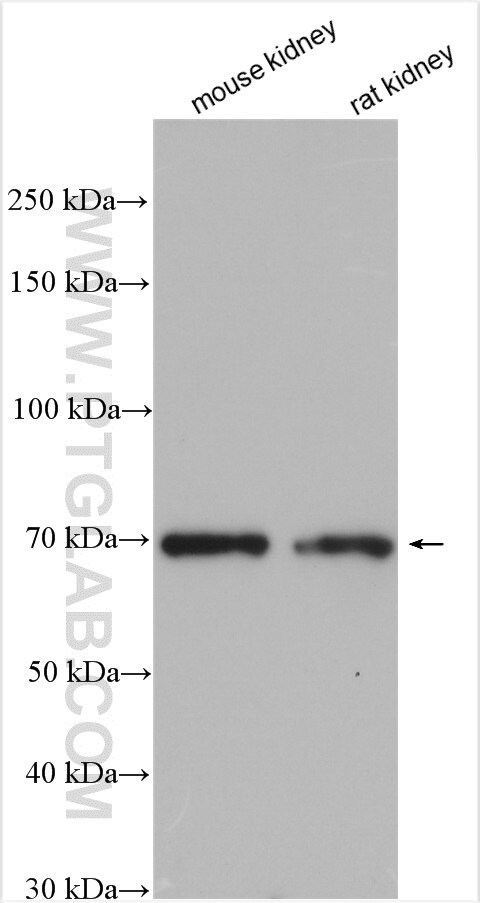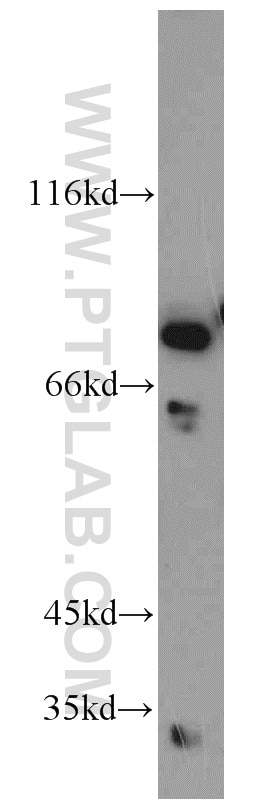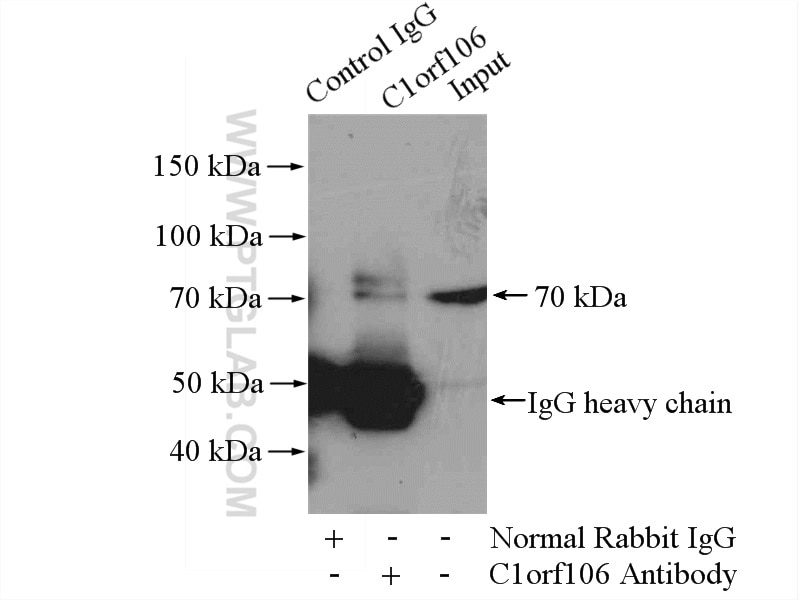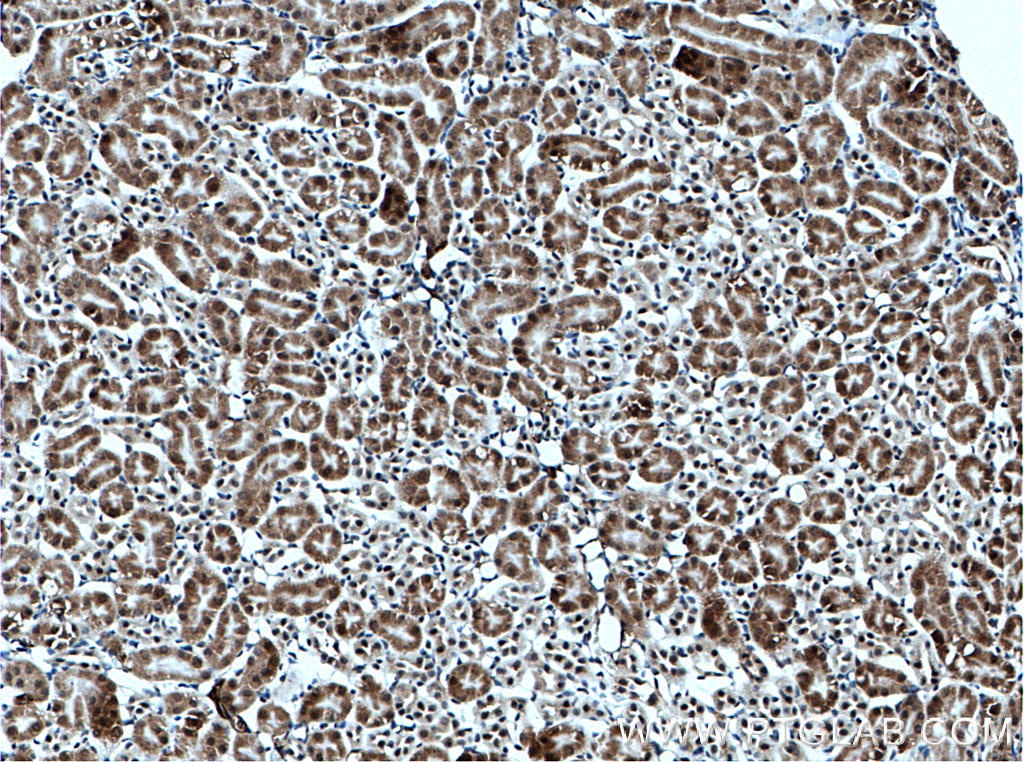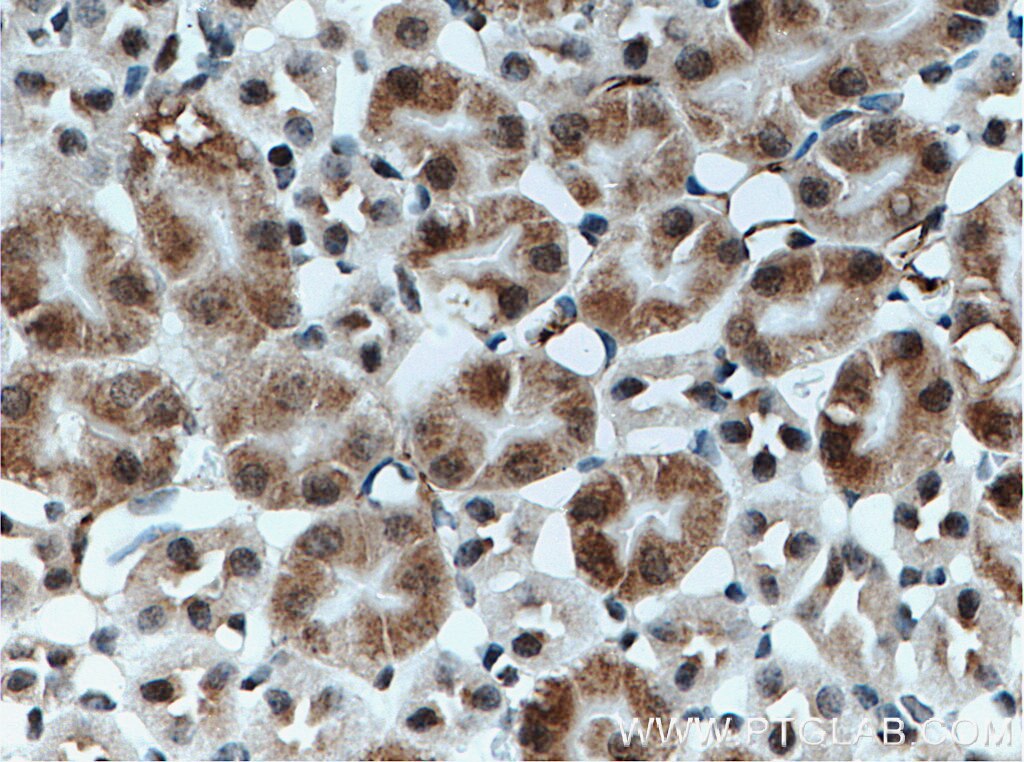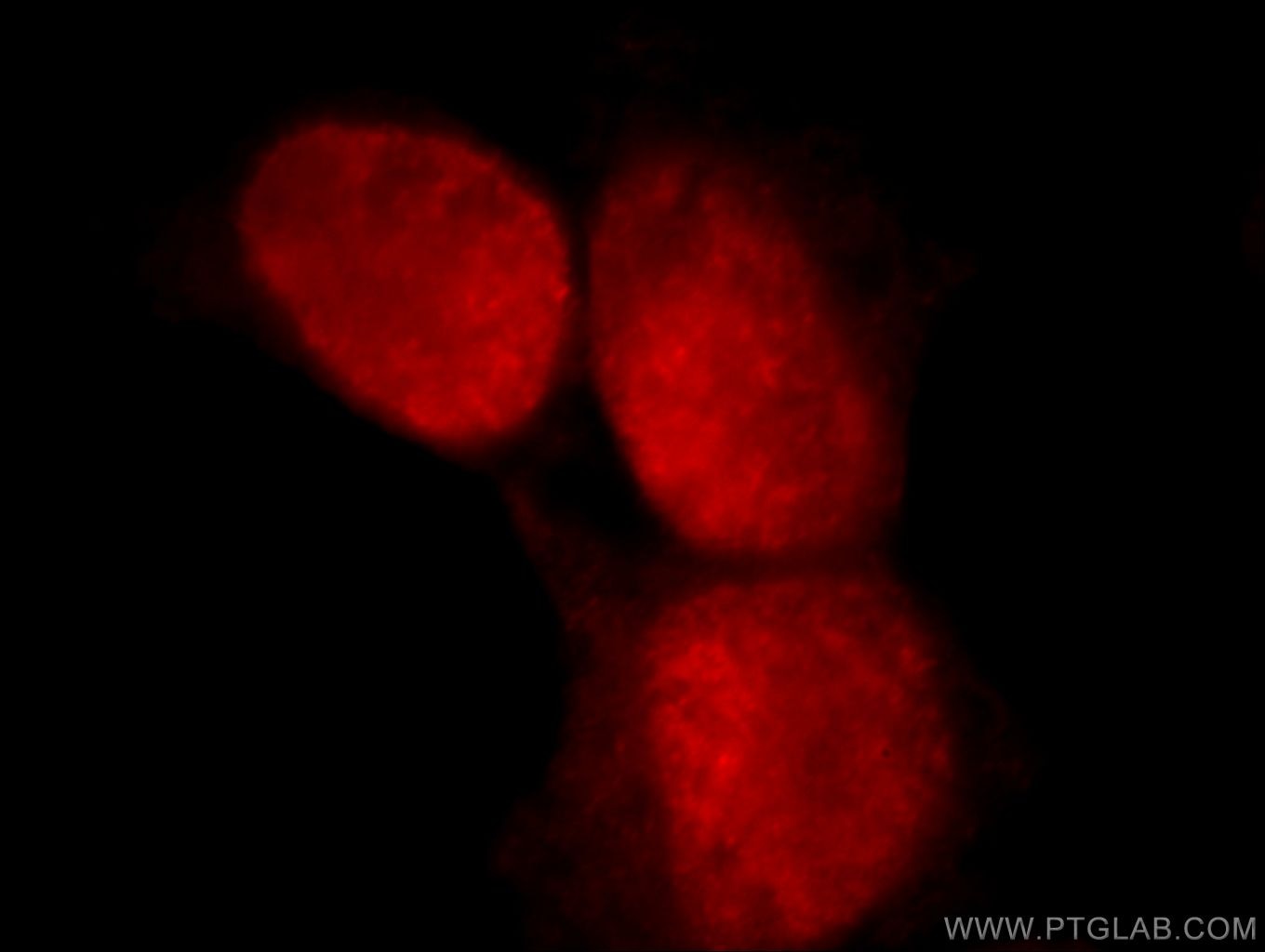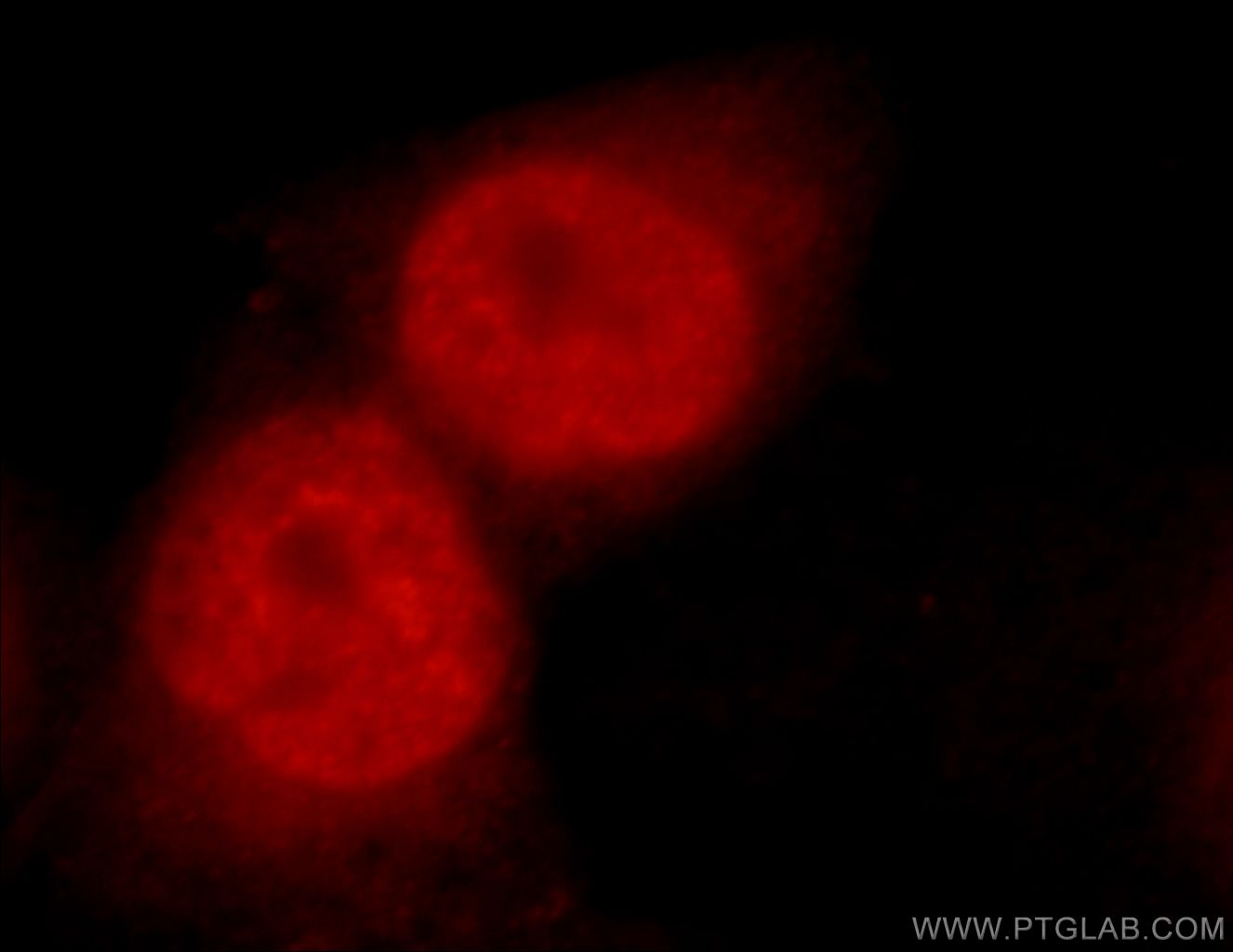Anticorps Polyclonal de lapin anti-C1orf106
C1orf106 Polyclonal Antibody for WB, IP, IF, IHC, ELISA
Hôte / Isotype
Lapin / IgG
Réactivité testée
Humain, rat, souris
Applications
WB, IHC, IF/ICC, IP, ELISA
Conjugaison
Non conjugué
N° de cat : 21506-1-AP
Synonymes
Galerie de données de validation
Applications testées
| Résultats positifs en WB | tissu rénal de souris, cellules HEK-293, tissu rénal de rat |
| Résultats positifs en IP | tissu rénal de souris |
| Résultats positifs en IHC | tissu rénal de souris, il est suggéré de démasquer l'antigène avec un tampon de TE buffer pH 9.0; (*) À défaut, 'le démasquage de l'antigène peut être 'effectué avec un tampon citrate pH 6,0. |
| Résultats positifs en IF/ICC | cellules HEK-293, cellules HeLa |
Dilution recommandée
| Application | Dilution |
|---|---|
| Western Blot (WB) | WB : 1:500-1:2000 |
| Immunoprécipitation (IP) | IP : 0.5-4.0 ug for 1.0-3.0 mg of total protein lysate |
| Immunohistochimie (IHC) | IHC : 1:50-1:500 |
| Immunofluorescence (IF)/ICC | IF/ICC : 1:10-1:100 |
| It is recommended that this reagent should be titrated in each testing system to obtain optimal results. | |
| Sample-dependent, check data in validation data gallery | |
Informations sur le produit
21506-1-AP cible C1orf106 dans les applications de WB, IHC, IF/ICC, IP, ELISA et montre une réactivité avec des échantillons Humain, rat, souris
| Réactivité | Humain, rat, souris |
| Hôte / Isotype | Lapin / IgG |
| Clonalité | Polyclonal |
| Type | Anticorps |
| Immunogène | C1orf106 Protéine recombinante Ag15987 |
| Nom complet | chromosome 1 open reading frame 106 |
| Masse moléculaire calculée | 663 aa, 73 kDa |
| Poids moléculaire observé | 70-73 kDa |
| Numéro d’acquisition GenBank | BC106877 |
| Symbole du gène | C1orf106 |
| Identification du gène (NCBI) | 55765 |
| Conjugaison | Non conjugué |
| Forme | Liquide |
| Méthode de purification | Purification par affinité contre l'antigène |
| Tampon de stockage | PBS avec azoture de sodium à 0,02 % et glycérol à 50 % pH 7,3 |
| Conditions de stockage | Stocker à -20°C. Stable pendant un an après l'expédition. L'aliquotage n'est pas nécessaire pour le stockage à -20oC Les 20ul contiennent 0,1% de BSA. |
Informations générales
C1orf106 (also known as innate immunity activator, INAVA) has thus far been considered to play a significant role in intestinal inflammatory diseases. C1orf106 is highly expressed in the human intestine and intestinal epithelial cell lines but expressed at low levels in myeloid cells and mouse bone marrow-derived macrophages (PMID: 29420262). Recent studies have also shown that C1orf106 protects against colitis by stabilizing E-cadherin and bridges mucosal barrier function with inflammatory signaling (PMID: 31376015).
Protocole
| Product Specific Protocols | |
|---|---|
| WB protocol for C1orf106 antibody 21506-1-AP | Download protocol |
| IHC protocol for C1orf106 antibody 21506-1-AP | Download protocol |
| IF protocol for C1orf106 antibody 21506-1-AP | Download protocol |
| IP protocol for C1orf106 antibody 21506-1-AP | Download protocol |
| Standard Protocols | |
|---|---|
| Click here to view our Standard Protocols |
